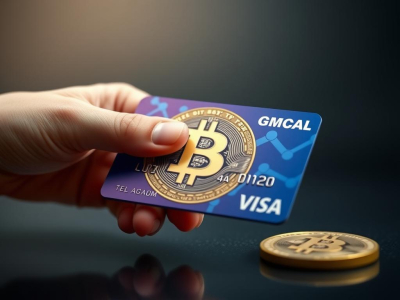
Prioritize security when utilizing cryptocurrencies on debit cards. The integration of digital currencies into traditional financial systems presents unique risks that must be analyzed meticulously. Each transaction carries inherent vulnerabilities, from wallet management to potential exposure to fraud.
The analysis reveals that while convenience is a benefit, the safety of your investments can be compromised by high fees and inadequate protection measures. Assessing the robustness of security protocols offered by card providers is essential. A comprehensive understanding of these factors can significantly reduce risk during cryptocurrency transactions.
Investors should remain vigilant about wallet security and choose platforms that demonstrate a strong commitment to safeguarding user assets. Regularly updating passwords, employing two-factor authentication, and monitoring transaction histories are practical steps toward enhancing safety in this evolving financial landscape.
Evaluating Security Protocols Used
Conduct a thorough analysis of the security protocols utilized by cryptocurrency debit card providers. Prioritize platforms employing robust encryption methods to safeguard wallet information and transaction data.
- Multi-Factor Authentication (MFA): Ensure that MFA is mandatory for all transactions. This adds an extra layer of security against unauthorized access.
- Cold Storage Solutions: Choose services that store the majority of funds in cold wallets, minimizing exposure to online threats.
- Regular Security Audits: Assess whether the provider undergoes frequent independent security audits to identify vulnerabilities.
- Insurance Coverage: Verify if the platform offers insurance against theft or fraud, which can mitigate risks associated with investments.
Monitor fees associated with transactions as they can indicate underlying operational costs and potential vulnerabilities. High fees may suggest less efficient security measures or increased risk management expenses.
- Review user feedback on security incidents related to specific cards.
- Analyze transaction histories for irregular patterns that may suggest compromised accounts.
A thorough understanding of these protocols will enhance safety when using cryptocurrency debit cards, ensuring more secure investments in a volatile market.
Risks of Cryptocurrency Transactions
The primary risk in cryptocurrency transactions involves the potential for significant financial loss due to market volatility. Prices can fluctuate wildly, impacting investments drastically within a short period. Users must assess their risk tolerance and consider setting limits on transactions.
Another critical factor is the security of wallets. Storing cryptocurrencies in online wallets exposes users to hacking risks. Employing cold storage solutions provides enhanced safety, as these wallets are not connected to the internet and thus less vulnerable to cyberattacks.
Fees associated with transactions can also pose a risk, particularly when transferring funds during high network congestion periods. Users should analyze fee structures before initiating any transaction to avoid unexpected costs that could diminish investment value.
Phishing scams targeting cryptocurrency users remain prevalent. Fraudulent websites may mimic legitimate services, tricking individuals into revealing sensitive information such as wallet keys or login credentials. Always verify URLs and enable two-factor authentication where possible to mitigate this risk.
Lastly, regulatory scrutiny varies by region, which could affect the legality and accessibility of cryptocurrency use on debit cards. Staying informed about local regulations helps in making safer decisions regarding cryptocurrency investments.
Best Practices for Users
Regularly update your debit card's security features, including PINs and passwords. Utilize two-factor authentication (2FA) wherever possible to enhance transaction safety.
Choose cryptocurrency debit cards that offer transparent fee structures. Analyze the associated costs for transactions, as hidden fees can significantly impact your overall investments.
Conduct thorough research on the cryptocurrency platform used with your debit card. Investigate their security protocols and user reviews to assess their reliability and risk factors.
Limit your exposure by using a dedicated wallet for cryptocurrency transactions instead of storing funds directly on the debit card. This adds an additional layer of security against potential theft or fraud.
Monitor account activity regularly. Set up alerts for any transactions made with your debit card to quickly identify unauthorized activities.
Be aware of phishing attempts that may target your credentials. Always verify communication from service providers before entering sensitive information.
When making transactions, prefer established cryptocurrencies known for their security features. Lesser-known coins may carry higher risks and volatility.
Consider using a virtual card option linked to your primary account for online purchases. This minimizes risk by limiting exposure to potential breaches.
If you encounter suspicious activity or feel uncertain about a transaction, pause and reassess before proceeding. Quick decisions can lead to financial losses in an unstable environment.
Regulatory Compliance Considerations
Ensure compliance with local regulations regarding cryptocurrency transactions on debit cards. Research the specific laws governing digital assets in your jurisdiction, as these can significantly affect your investments and transaction safety.
Know Your Customer (KYC) protocols are critical. Many card issuers require users to verify their identity, which helps mitigate risks associated with fraud and money laundering. Non-compliance can result in hefty fees or account suspension.
Be aware of Anti-Money Laundering (AML) practices mandated by regulators. Transactions involving cryptocurrencies often attract scrutiny; therefore, maintaining transparent records of wallet activities is essential for audits and potential investigations.
Tax implications also play a crucial role. In many regions, cryptocurrency gains are subject to capital gains tax. Keep accurate records of all transactions to ensure compliance and avoid penalties during tax assessments.
Understand the security measures enforced by your debit card provider. Look for services that comply with industry standards like PCI DSS (Payment Card Industry Data Security Standard) to protect against unauthorized access and breaches.
The liability limits set by your card issuer should be reviewed carefully. Familiarize yourself with the terms related to fraudulent transactions; knowing what you're responsible for can significantly impact your risk profile.
A proactive approach to regulatory compliance not only enhances safety but also builds trust in your cryptocurrency dealings.


You can be the first!